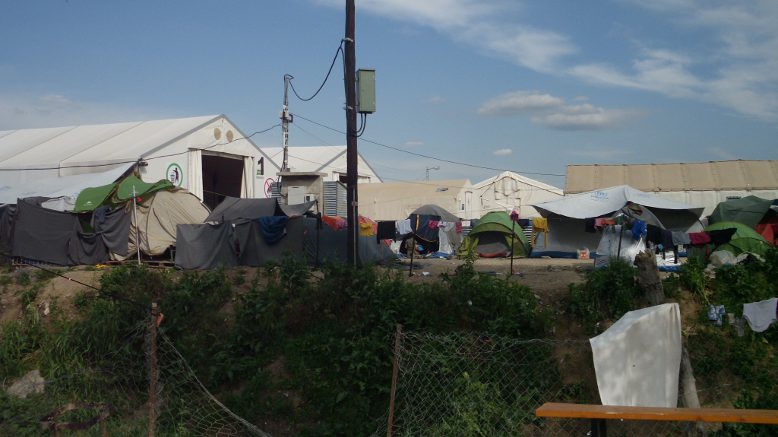The situation in Idomeni has not changed much in the last days: there are still people sleeping in tents and abandoned train compartments, long queues at the food distribution, volunteers collecting garbage, kids running around everywhere and adults trying to organize daily live. The train tracks towards the Greek-Macedonian border crossing are blocked and guarded by two large Greek police vans.
The continued closure of the Greek-Macedonian border forces refugees to seek alternative – illegalized and therefore more dangerous – routes. Some people left Idomeni and go to bigger cities, few leave for the state-organised camps, some try to cross into Macedonia/FYROM by walking but are regularly and repeatedly pushed-back to Greece by the Macedonian/FYROM authorities. Alternative routes seem to be the main conversation topic in Idomeni. What are the best routes? How dangerous is it? How much does it cost? Where to get enough money? Closing the border does not counteract the smugglers, instead it increases the number of people who depend on them. However, only people with the financial and physical abilities can attempt the difficult illegalized routes.
But still in Idomeni – and also in the military camps – there are people that do not want to accept the situation and keep fighting for their rights. Like Rania, a young woman from Syria, who tried to reach the asylum service via Skype for 20 days and did not get through. She started a petition on change.org that is addressed to the policymakers in Greece and the EU and demands a face-to-face asylum service for refugees in Greece: https://www.change.org/p/skype-is-no-solution-we-need-face-to-face-services-for-refugees-in-greece-livesonhold
Moreover, on the other side of the borders there are people who want refugees in Idomeni and elsewhere to move on, such as the group Welcome to Wuppertal who are pressuring the city to „Let people from Idomeni come to Wuppertal“.

